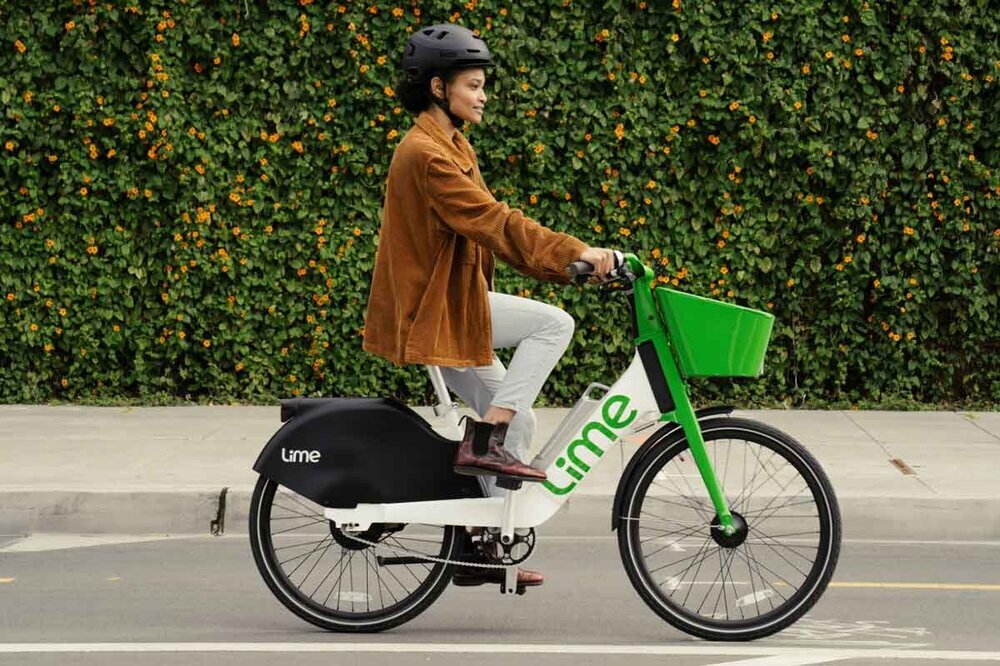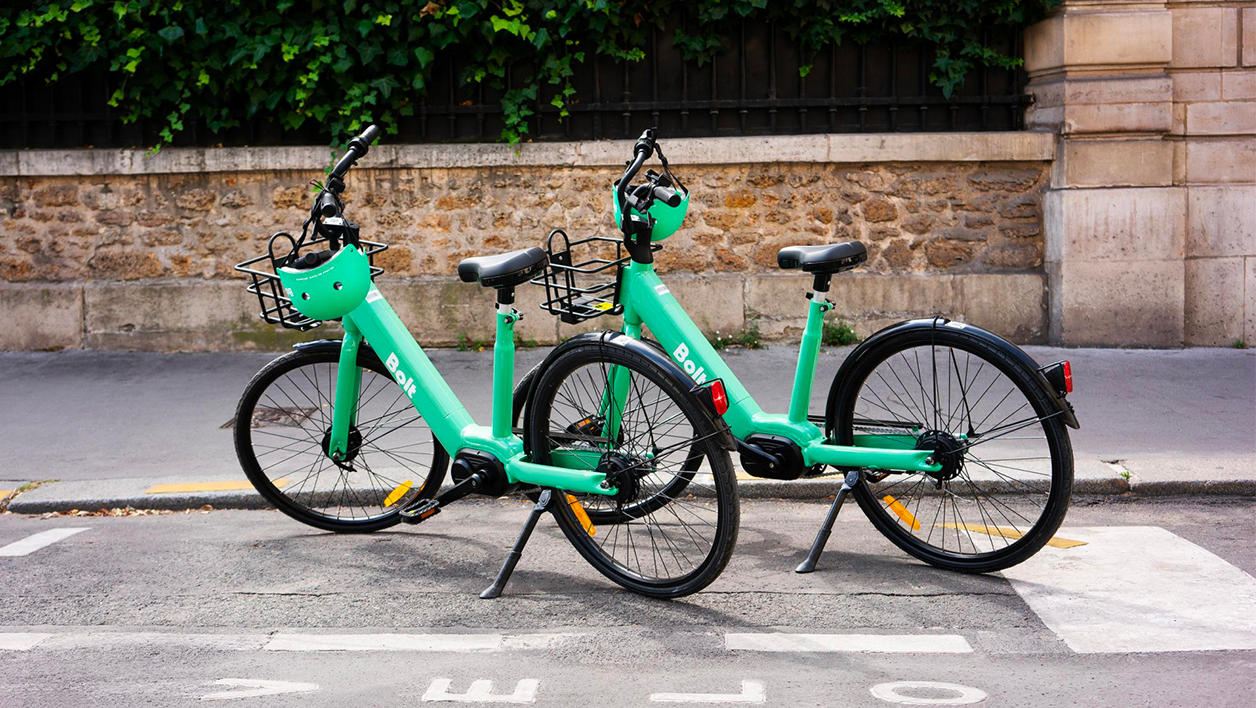The rise of electric bike sharing systems
2020 has seen a sharp increase in cycling and bike sales. In a report published on the 12th of July 2021, the Confederation of the European Cycle Industry (Conebi) stated that 22 million bicycles were sold in the European Union and in the United Kingdom. The report particularly emphasises the exponential growth of electrically assisted bikes, with sales up 50% in 2019.
With the sanitary crisis, cycling has become a safe, environmentally friendly and fast way to travel. The number of cyclists in urban areas is increasing, and this trend is accentuated by various factors:
Electric bikes allow users to enjoy the benefits of cycling for their daily trips while taking advantage of the boost provided by electric assistance.
More and more cities are introducing electric bike sharing systems. Shared electric bikes, whether dock based or free floating systems, are very popular with users.
The efforts made by cities to develop their networks of bike lanes and make urban cycling safer are also helping to convert more and more city dwellers.
In this article, Qucit offers an overview of these electric bike sharing systems, based on the case study of Nice Côte d'Azur Métropole (France), whose electric bikes form a significant part in the Metropolitan Cycling Plan.
State of the art of electric bike-sharing systems
There are three forms of bike sharing system, both electric and regular.
Dock-based bike sharing systems imply that bikes must be picked up and dropped off at a dedicated physical station.
Free-floating bike sharing systems allow users to drop off the bike anywhere in the public space within the operator's area of operation.
Hybrid bike sharing systems encourage users to drop off their bikes at virtual stations determined by the operator.
Bike-sharing systems can be operated by private operators or by the local authority (in-house or through a public service delegation). However, free-floating systems are mainly financed and operated by private businesses.
« he choice of the system is up to the local authority: either the authority decides to let private operators set up in its territory, leaving them free to set their own fees, or the local authority keeps this public service to be able to manage the price of bike trips. »
As an example, the 2020 French barometer of shared mobility, released by Fluctuo, indicates the average price of a 15 to 20 minute trip with a dock based system is €0.7, compared to €3.5 for a free floating system.
Following the sharp increase in sales of personal electric bikes, many cities have set up electric bike-sharing systems. Toronto in Canada, Tartu in Estonia and Nice in France are several examples of them. According to the NABSA in its 2020 Shared Micromobility State of Industry Report, the percentage of bikeshare systems deploying e-bikes increased from 28% in 2019 to 44% in 2020. The advantages of electric assistance are numerous.
First of all, electric bikes increase the modal share of cycling in cities with high relief.
By making less physical effort than with a conventional bicycle, new cyclists are attracted by shared electric bikes.
They also allow users to avoid the purchase of their own e-bike, which can be expensive (between 1000 and 2000 euros), as its maintenance, which is more important than for a mechanical bike.
E-bikes and regular bikes have many features in common, but e-bikes require special maintenance. Tyre pressure, chain and derailleur must be maintained in the same way on both types of bike. However, on e-bikes, the brakes need special attention as they are under great strain from repeated accelerations. In addition, the charging cycles of the battery in e-bikes must be respected to avoid damaging it. On top of that, the e-bike engine must be checked and serviced regularly by a cycle mechanic to check the tightness or to replace a defective part for example. Thus, the maintenance of an e-bike requires different skills for technicians than those needed for the maintenance of a regular bike.
For bike sharing systems, two types of electrically assisted bicycles can be offered by operators:
Regular electric bikes, which have an integrated engine and battery most often into the vehicle.
Hybrid electric bikes, which are vehicles that can be used in both mechanical and electric versions. The bike is equipped with an engine and a receptacle for a removable battery. The user has to rent a personal battery in order to benefit from the electric assistance of the bike.
Credits : Bolt
Credits : 20 minutes
Shared electric bikes offer the possibility for many cyclists to use them daily as a means of transport. As mentioned above, the electric assistance of these vehicles is attracting a new audience. Thus, the implementation of an electric bike sharing system in a city must be accompanied by a quality cycling network. In this way, Nice Côte d'Azur Metropole (France) has introduced a fleet of shared e-bikes in its Metropolitan Cycling Plan.
Study case : Nice Côte d’Azur Métropole and its Metropolitan Cycling Plan
The 2021 Metropolitan Cycling Plan of the Nice Côte d'Azur Metropole reflects the local authority's dynamic political commitment to developing cycling in its region. The Metropole's cycling policy is based on three key factors: infrastructure, parking and associated services and communication.
Infrastructures
By 2026, the Metropole wishes to pursue building its secure cycle network. While the existing network already includes 179 km of bike lanes, the Metropole's objective is to add 160 km more within 5 years.
Credits : Nice Côte d’Azur Métropole
Services
In addition to the development of these infrastructures, the Metropole intends to increase the supply of bicycle parking, particularly in strategic locations, by adding bicycle parking lots, sheltered and secure bicycle storage spaces, as well as bicycle racks on the public space.
The Metropole also wishes to offer new services to facilitate cycling mobility on its territory:
The setting up of pumping stations and bicycle repair workshops
The provision of tricycles for people with disabilities
The development of the E-Vélobleu fleet.
Originally, the Vélo bleu bike sharing system in the Metropole, launched in 2009, only included regular bikes. E-Vélobleu fleet was introduced in 2020 to complete the service. These electric bikes work on the principle of semi-free floating: they must be parked in places predetermined by the application. Today, the Vélos Bleus fleet has nearly 1,500 vehicles, including 500 electrically-assisted bikes, with 170 stations spread throughout Nice.
Communication
Finally, in order to encourage cycling on its territory, the Nice Côte d’Azur Metropole plans to communicate on all these actions in order to make them as known as possible through the "Nissa Bicyclette" communication campaign. Events are also organised throughout the year to increase awareness and bring the population together around cycling.
Qucit Bike : a bike sharing software.
With bike sharing systems constantly evolving, rebalancing stations can become complex. Indeed, e-bike sharing systems operate with different technology and are not used in the same way by users. This situation implies transformations in the daily work of the operators on the field, who may have to check and charge the level of the electric batteries for example.
Qucit Bike takes into account these new features and adapts its recommendations to the type of bike used by the operator. Qucit Bike is a software created for the operators to optimise the management of a bike sharing system. The software consists of two modules:
A dashboard, intended for the manager, allowing him to visualise in real time the state of the system and to analyse all the operations carried out.
A mobile application, used by the dispatchers in the field, allowing them to carry out their daily tasks in an optimal way.
Qucit Bike integrates the pick-up of e-bikes on the operator's worksheet to recharge them regularly in an intelligent way.
More details here
To get more information about shared e-bikes :










